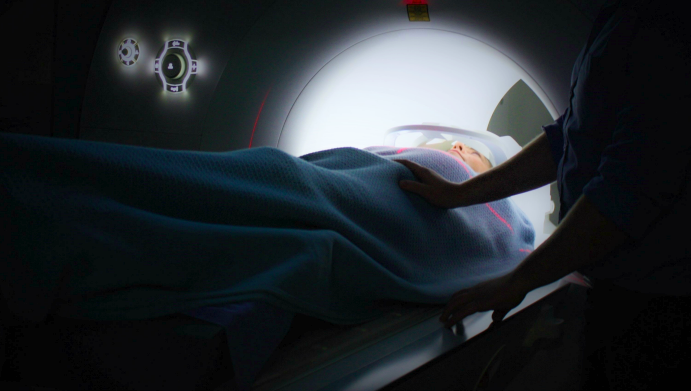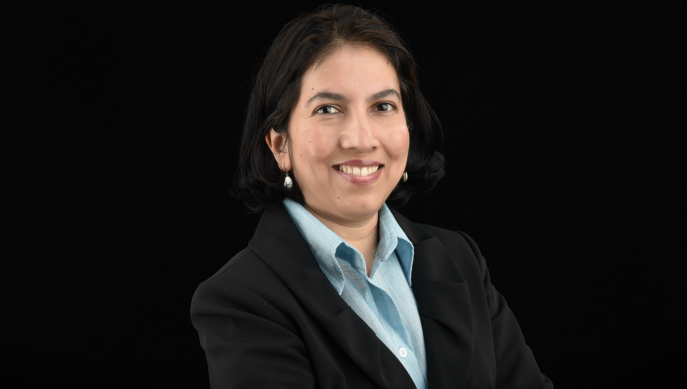OncoStem’s product CanAssist-Breast helps early-stage cancer patients plan optimum chemotherapy treatment


A close friend of Dr. Manjiri Bakre’s — a cell biology veteran with significant experience in cancer biology and drug discovery — was diagnosed with early-stage breast cancer at a young age of 30. Little did the patient know how aggressive her disease was until she succumbed to death two years later.
Devastated and disappointed at the inability to save the friend’s life, Bakre was determined to use her knowledge and expertise in cell biology, with the support of new-age technologies, to bring in a change and save millions of cancer patients, globally.
“Her death made me realise that perhaps today we don’t diagnose the disease. I thought to myself that we needed to dissect the tumour biology further to understand the progression/aggressiveness of the same, which will empower the clinician and the patients to understand the disease better and plan an informed treatment,” says Bakre.
“Such tests are available in developed countries like the US and some parts of the EU, and have saved the lives of thousands of patients. But these tests are not impactful in India or Southeast Asia as they are expensive and primarily developed and validated for stage 1 patients, who are few and far between. This has discouraged majority of patients from going for such tests and they end up receiving sub-optimal treatments,” Bakre maintains.
The very urge to make a difference drove Bakre to start OnocStem Diagnostics in 2011.
“OncoStem is an effort towards this goal. We focus on developing innovative tests in personalised medicine space. The tests, performed on the patient’s individual tumour, can help clinicians plan personalised treatment for each patient based on tumor biology,” adds Bakre, who holds a PhD in Cell Biology from Indian Institute of Science, Bangalore.
She revels that today approximately 95 per cent of early-stage (stage 1 & 2) breast cancer patients get chemotherapy to avoid cancer recurrence. Chemotherapy is expensive and only less than 15 per cent of patients with early-stage disease get the benefits of chemotherapy.
“Worse, chemotherapy has severe side effects that can substantially reduce the ‘quality of life’ of the patient. We are trying to solve this by developing innovative tests which assess the risk of cancer recurrence for early-stage cancer patients and which will help in optimum treatment planning,” she explains.
OncoStem’s first product is CanAssist-Breast, which, as the name suggests, is targeted at patients with breast cancer. It is a Machine Learning-based test that assesses the expression of metastasis-related biomarkers to predict the probability of recurrence of invasive ductal breast carcinoma. It categorises the risk of recurrence clearly as either high or low with no grey areas in between. Clinicians use this information, along with other clinical patient specific information, to devise tailor-made therapeutic strategies for each patient.
“The risk of cancer recurrence is dependent on tumor type, stage and on the biology of each patient’s tumour. CanAssist-Breast determines the proteomic fingerprint of the tumour. This information is then used by our proprietary Machine Learning-based algorithm that stratifies patients as low- or high-risk for recurrence. Patients classified as high-risk would have a greater probability of recurrence. This will help clinicians and the patients to understand the disease better and plan a suitable treatment,” she elucidates. “Adjuvant chemotherapy treatment of the patient can be customised based on the risk of recurrence.”


OncoStem Diagnostics Founder and CEO Dr. Manjiri Bakre
Based in Bangalore, OncoStem uses proteomics-based technology called Immunohistochemistry to perform the test. The technology is based on the detection of highly specific and quantitative antigen-antibody reactions that are measured specifically in tumor cells.
“Immunohistochemistry is a gold standard and time-tested technique. It is efficient, low-cost, and easy to perform across the globe. The data from immunohistochemistry, along with clinical parameters about the tumour, is then used by our proprietary Machine Learning-based statistical algorithm to stratify patient either as low-risk or high-risk for breast cancer recurrence,” she further elaborates.
Priced at INR 60,000 (under US$1,000), CanAssist-Breast can potentially save over 60,000 breast cancer patients in India alone and about one million worldwide every year from the severe side effects and unnecessary costs of chemotherapy, claims Bakre.
Aside from individual patients, CanAssist-Breast also targets clinicians, insurance companies and central and state insurance policies, who offer subsidised healthcare to people.
Currently, OncoStem is working with 10-plus hospitals and two large diagnostic chains in India, with plans to expand to Southeast Asia and the Middle East in the recent future.
OncoStem also has several reputed hospitals in the US and Europe signed up for the validation of CanAssist-Breast tests, she adds.
The medtech startup is also working on similar tests for oral, lung, and colorectal cancer. Research is underway towards identifying and characterizing novel drug targets for breast and oral cancer.
Last September, OncoStem raised US$9 million, led by Sequoia Capital with participation from existing investor Artiman Ventures. The company is now on the lookout for fresh investment to take the company to the next level.
Bakre tells e27 that OncoStem’s seven years’ journey has not been without challenges. “Working with hospitals in India to develop anything which uses clinical material has been a challenge due to lack of clear guidelines and implementation of the same. OncoStem has managed to come this far only because of a few good hospitals with visionary leaders and excellent clinicians, who believe in themselves and us. We are indeed fortunate to have found the correct clinicians and hospitals.”
Bakre, who has previously worked at Mt Sinai School of Medicine, NY, and at Moores Cancer Center, University of California, San Diego, feels that Indian entrepreneurs have the ability to develop path-breaking healthcare solutions, but low on self confidence and are often discouraged from starting new product driven healthcare ventures due to the scarcity of funds and the country, on the whole, lacks biotechnology start-ups who have had stellar exits apart from Biocon
“It’s really unfortunate that on the one hand we complain that all the new drugs and diagnostics developed in the West are expensive, but when there is a chance to develop something in India, we do not always lend a helping hand and support to or trust the party doing it. At times, they even dissuade someone from doing so.”
Image Credit: Ken Treloar on Unsplash
The post This Machine Learning startup helps breast cancer patients customise treatment, predicts risk of recurrence appeared first on e27.
Source: E27
